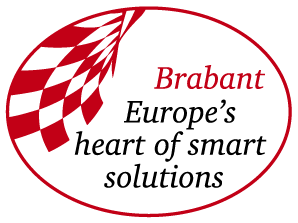The Netherlands is a quite small country with a population of 16.5 million people. It is one of the most densely populated countries in the world. It measures no more than 300 kilometers north to south and 200 kilometers from west to east. The roads are busy, and so are the inland waterways, while there is also a lot of air traffic. The extensive rail network in the Netherlands enables you to get to all the places of interest quickly and easily.
A very flat country
The Netherlands has a distinctive landscape. When you arrive in the Netherlands at Schiphol Airport, your initial impression of the polders, ditches, rivers and cities can be seen from the air. If you continue your journey from Schiphol by train, you will see that urban and industrial landscape alternate with fields, forests and lakes. The country is very flat, which makes the horizon look rather wide.
Holland
The Netherlands is also referred to as Holland, because of the dominant position of the two western provinces North Holland and South Holland during the birth of the country in the 16th and 17th centuries. Today, the provinces North and South Holland include the Netherlands’ three largest cities: Amsterdam, the capital, The Hague, the seat of government, and Rotterdam, Europe’s largest port.
Dutch language
Dutch is the national language of the Netherlands. Although the country has a language of its own, the majority of the population speaks English and often other foreign languages as well, for example German or French. This makes it an ideal environment for students who want to enrich their knowledge abroad.
International orientation
Society in the Netherlands is multicultural. The Dutch have always had extensive trade relations with other countries and continents. This international orientation together with religious tolerance – the country has a wide religious diversity – have led to large groups of people from other countries settling in the Netherlands over the centuries.
Dutch Economy
The Dutch economy is one of the strongest in the world, and it is the sixth biggest within the European Union. The sectors contributing the most are services (50%), industry (36%), government (9%), agriculture and fisheries (3%) and mining (2%). The Dutch economy and business community have a strong international focus, and over half of the country’s Gross National Product comes from international trade.
Monarchy and parliament
The Netherlands is a constitutional monarchy with a parliamentary system, and its government consists of the Queen and ministers. For historical reasons the government and parliament are seated in The Hague, although Amsterdam is the capital. The Netherlands has a coalition government. Queen Beatrix is the head of state.
Attitude of openness
The country has a knowledge-based society; its prosperity is primarily based on sophisticated, global services. That is why there is an attitude of openness towards the rest of the world. It is open to business, but it is also socially and culturally open.
Dutch people
The Dutch are known for being down-to-earth and they are very direct. Some people may find this tactless, but Dutch people consider it a sign of honesty and openness. The Dutch are also known as a tolerant people, particularly to those of different opinions and persuasions. They are used to discussing differences of opinion and admire those who stand up for themselves, their ideas and ideals. Freedom is a cherished virtue in the Netherlands.
Education in the Netherlands
Studying in the Netherlands means developing an open mind and increasing your international orientation. The Dutch system of higher education enjoys a worldwide reputation for high quality. The Times Higher Education Supplement ranks 10 universities in the Netherlands among the top 200 in the world.
 Nederlands
Nederlands English
English 













